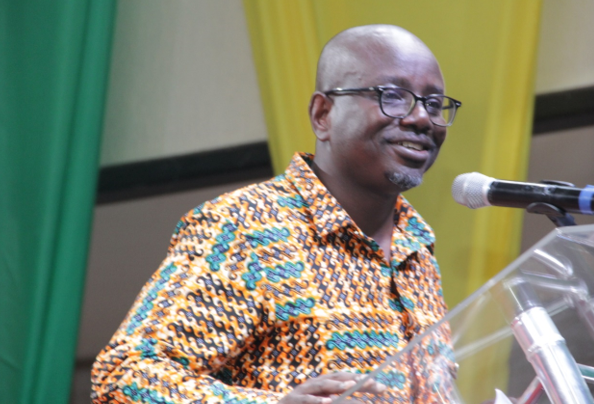By Prince Dennis KLINTINGS, ([email protected])
Let’s review and reengineer our Tourism Development Strategy to reposition for double digit rapid tourism growth, use it to diversify, expand & restructure socio-economic frontier to achieve Ghana’s transformation as Int’l Tourism Hub ambition
TOURISM is an outstanding multi-million dollar competitive and holistic universal cash-cow industry which is founded on man-made, natural, heritage and cultural resources. It ranked as the foremost industry of the millennium, with sustained, consistent, remarkable, impressive and phenomenal growth records with regards to visitor numbers and receipts since the turn of the millennium across the world until the outbreak of Ebola and coronavirus (COVID-19) debilitating pandemics which brought the evergreen industry to its lowest knees.
The industry, over the years, additionally stood out as the lead and main contributor to the gross domestic product (GDP) of many countries from both developed and developing economies before the debilitating pandemic disruptions.
Recovery & rebound
Tourism is a very dynamic, robust and resilient industry which survives man-made and natural disruptions like road crashes, plane crashes, fire-outbreaks, floods and others to bounce back better and bigger. Figures from many destinations have revealed that most destinations have surpassed pre-COVID-19 figures with signs of better growth.
UNWTO
The United Nations World Organization (UNWTO), a Spain-based UN specialist agency, has mandate for championing and promoting tourism excellence in the world.
Protocols
UNWTO, as a specialist agency, has undertaken, conducted and commissioned several cutting-edge scientific researches on tourism development and industry trends, from which it developed protocols, best industry practices principles, guidelines, regulations, rules, conventions and others to guide governments, development agencies, industry investors, policy formulators, regulators, destinations, facilities, industry advocates, non-governmental organisations, facility and destination host communities, among others, identify strategic stakeholders all – aimed at promoting tourism excellence across the world.
1:10
1:10 stands-out as the foremost basic and fundamental tourism best industry principle and protocol, which says a very vibrant and robust domestic tourism industry is the core and life wire to sustainable tourism industry development and progress. According to the 1:10 principle, for every 1 international tourist’s visit to a facility and or destination, there must be 10 corresponding domestic tourist visits.

Ghana’s overview & narrative
Ghana has great national tourism potential which consists of rare and unique man-made, natural, heritage and cultural resources, including the Greenwich Meridian in the industrial and harbour city of Tema; the exact centre of Ghana at Kintampo in the Kintampo North Municipality in the Bono East Region; Wli Waterfall, West Africa’s tallest Waterfall at Wli near Hohoe in the Hohoe Municipality, Volta Region. There are also historic colonial, slave trade and missionary landmarks, including Cape Coast, Elmina, Christianborg Castles.
Aboakyer, Akwasidae, Homowo, Kplejoo, Anlo-Hogbetsotsozaa, Akwambo, Fetu Afahye, Edina Bronya, Kundum and Odwira are but few prominent heritage, cultural and traditional festivals which are celebrated by the diverse tribes and ethnic groups in Ghana but had been neglected, untapped and unharnessed until the 80s when severe drought and famine, indiscriminate population growth and unemployment, mass repatriation of illegal Ghanaian immigrants from abroad and other socio-economic pressures brought Ghana’s economy to near collapse. To address the socio-economic challenges and revive the economy, the country, in the 90s, fell on and designated tourism as strategic front burner industry for socio-economic reconstruction.
Strategy
Designating tourism as the front burner strategic industry was not mere rhetoric and business as usual, but was demonstrative in initiation and implementation of plethora of commendable cutting-edge tourism development policies, products and projects (TDPP&Ps), specifically from 1993 to date.
MOT’93
The passage PNDCL 238, 1990, which formally created the National Commission on Culture (NCC) – a corporate body and statutory institution that has the mandate for the cultural sector, was the boldest and visionary leadership act which set the pace and opened the floodgates for sustained tourism development and growth.
Executive Instrument 1993 (EI’93) expanded the Office of the Civil Service (OCS) and formally created the erstwhile Ministry of Tourism (MOT) – predecessor to the Ministry of Tourism, Arts and Culture (MOTAC) – as specialist, technical and statutory national technical ministry to give the crucially needed autonomy to tourism, which was hitherto clamped as footnote to other crucially demanding, complex and sensitive sectors and industries.
1996-2010, 15-yr long-term Tourism Development Blueprint
MOTAC and its predecessors justified their creation; therefore, confidence was reposed in them to initiate and implement plethora of cutting-edge and commendable TDPP&Ps, among which were the famous 1996-2010, 15-year long-term Tourism Development Blueprint (TDB), which is very much relevant to Ghana’s tourism development aspirations of today just as it was when it was first floated some twenty-eight years ago.
2003-2007, 4-yr short-term Strategic Action Plan
Tourism is a very dynamic, robust and sensitive industry which moves in tandem with the needs and trends of society, environment and time; hence, tourism is described as a non-event but work-in-progress industry which is environmentally sensitive. Fallen statesman of blessed memory, Mr. Jake Obetsebi Lamptey, who was an astute brand and marketing expert and strategist, brought his expertise to bear on Ghana’s tourism development during his tenure as Minister of Tourism and Diasporan Relations (MOTDR).
He demonstrated pragmatic leadership as a minister to use the 2003-2007, 4-yr short-term Tourism Strategic Action Plan (TSAP) marketing principle which broke down the famous 1996-2010 long-term tourism development strategy into short-term deliverable targets, which were breathed fresh perspective and brought a lot of vibrancy to drive Ghana’s tourism development agenda.
Community-based ecotourism projects
MOTAC and GTB, now Ghana Tourism Authority (GTA), with funding from the United States of America International Development Agency (USAID) in 2002, and in collaboration with Nature Conservation Research Centre (NCRC) – an environmental non-governmental organisation, SNV Netherlands Development Organization, United States Peace Corps-Ghana, initiated and implemented pilot environmental conservation and tourism better known as Community-Based Ecotourism projects (CBEPs) at carefully selected destinations, including Afadjato, Amedzofe, Tafi-Atome Monkey Sanctuary, Liati-Wote, Boabeng-Fiema Monkey Sanctuary, Bunsu Arboretum, Bobiri Butterfly Sanctuary, Tano Boase Sacred Grove, Sirigu Pottery & Arts Village ,Paga Crocodile Ponds, Nania Slave Camp, Xavi Bird & Butterfly Conservation Sanctuary, Wassa-Domama Rock Shrine, Tongo Tenzug Shrines, Wechiau Hippo Sanctuary and others. CBEPs was an overwhelming success, but was unfortunately cancelled and discontinued due to lack of funds.
Low budgetary allocation & poor funding
Tourism is a capital intensive and very competitive universal industry; however, low budgetary allocation, lack of funds and poor funding are recurring common features of Ghana’s public tourism sector, especially the Ministry of Tourism, Arts and Culture (MOTAC) and its implementing agencies – including Ghana Tourism Authority (GTA), National Commission on Culture (NCC), Kwame Nkrumah Memorial Park (KNMP), Dr. WEB Dubois Memorial Centre, Dr. George Padmore Memorial Pan-African Research Library, Ghana Tourist Development Company Ltd. (GTDC), the Hotel, Catering and Hospitality Training Institute, (HOTCATT), the National Theatre of Ghana (NTG), Ghana Folklore Board, Bureau of Ghana Languages.
From 1993 to date, succeeding tourism ministers have gone the extra mile to bring pragmatic and innovative leadership to bear to source for additional crucial funds and funding to execute national tourism development initiatives.
Obetsebi Lamptey principle, strategy & legacy
Public service is a rare opportunity and privileged call to national duty and humanity. Appointees and office holders give off their best to justify the confidence reposed on them, serve diligently and leave imposing legacies for posterity. Ghana’s 4th Republican journey also dawned new era for our tourism development narrative with autonomy and statutory sector ministry in the Office of Civil Service, with accompanying and succeeding political appointments and leadership from Mr. Stephen Ayidyia, Madam Vida Amadi Yeboah, Mr. Mike Afedi Gizo, Madam Hawa Ogede Yakubu, Kwamena Bartels, Mr. Jake Obetsebi Lamptey,Stephen Asamoah Boateng, Madam Oboshie Sai Coffie, Madam Juliana Azumah-Mensah, Madam Akua Sena Dansua, Madam Zita, Elizabeth Ofosu-Agyare, Catherine Abelema Afeku, Barbra Oteng Gyasi, Dr. Ibrahim Mohammed Awal to Mr. Andrew Kofi Egyapa Mercer .
Mike Gizo – public relations expert and Jake Obetsebi Lamptey – also adecorated branding, marketing and advertising strategist stood stellar and taller among past tourism ministers who brought lots of innovation, creative events, activities and vibrancy to bear on Ghana’s tourism scene and narration during their tenure.
Mr. Obetsebi Lamptey was credited to have utilised the ministry’s share of HIPC allocation to construct visitor receptive facilities at Atibie Paragliding Site, Assin-Manso, Wli Waterfalls and other selected attraction sites across the country. Ghana’s Paragliding Festival, an aviation sports and tourism event, is an enduring legacy of Mr. Obetsebi Lamptey and Madam Bridget Kastriku, retired Chief Director of MOTAC.
Innovation – the winning formula
Tourism is a universal industry founded on man-made, natural, heritage and cultural resources, with strict adherence to UNWTO protocols and best industry practice principles. Strategic innovation in product development, packaging (branding) and promotional strategy, (product) marketing and promotion activation make up winning formula that dramatically transforms destinations and their facilities into busy, competitive, high-class and prominent international tourism cash-cows and traffic hubs.
Land-use pan
Low budgetary allocation and lack of funds and funding have been the bane of MOTAC and its implementing agencies over the years. It is one herculean and debilitating challenge which has very huge negative impact and obstructs Ghana’s rapid tourism progress over the years, where promising tourism projects such as Community-Based Ecotourism Projects, Tourism Receptive Facilities, Land Use Plans and others are abandoned due to lack of funds and funding.
Contribution to GDP
Tourism has served Mother Ghana very well and ranked as the fourth (4th) largest contributor to gross domestic product (GDP) over the years with great prospects and potential to contribute more and better.
World Tourism Day Resolution
27th September is United World Tourism Organization World Tourism Day (WTD). The anniversary of UNWTO is used to draw the world’s attention to socio-economic value of tourism and its contribution to socio-cultural and economic development and improvement of livelihoods in the world.
MOTAC must make tourism development resolution a core aspect of WTD 2024 to review, overhaul and address defects in our tourism development strategy to reposition for double digit accelerated tourism growth.
MOTAC must use WTD to mobilise resources and funds to initiate and implement pragmatic and comprehensive tourism development reforms (TDR).The pragmatic and strategic TDR must review, reform and reengineer Ghana’s current tourism development strategy (TDS) and reposition it for rapid double digit growth to attain the ambitious tourism development target to transform the country into prominent international tourism and aviation hub.
The reforms must include review and amendment to the Tourism Act 2011, Act 817; amendment to obsolete, duplicated and fragmented tourism sector laws and institutions, among others.
Tourism whip
MOTAC must have a Tourism whip to ensure that all our tourism development policies and projects comply with UNWTO protocols and best industry practice principles.
Review, reform & reengineer strategy
Conclusions from studies into tourism and its future prospects by astute national and international development agencies such as UNWTO, the World Trade Organization (WTO), United Nations Education, Scientific and Cultural Organization(UNESCO), World Intellectual Property Organization (WIPO), the United Nations Development Programme and others said the tourism evolution has come to stay and bound to have bigger impact and influence on the overall global socio-economic frontier and outlook.
So long as industry players adhere strictly to all best industry practice principles, protocols, rules, guidelines and regulations , tourism development is not an event but work in progress, which has served Ghana very well over the years – especially from 1993 to date – where it has consistently ranked as the fourth (4th) largest contributor to GDP growth with forecasts and conclusions from several national and international studies affirming that Ghana’s tourism potential has the wherewithal and capacity to more than double its current contribution to GDP.
From 1993 to date, tourism has given the country all the important and needed first-hand primary facts, statistics and experience to guide us to undertake pragmatic tourism development reforms.
Happy World Tourism Day to all tourism sector stakeholders, industry players and patrons.

















